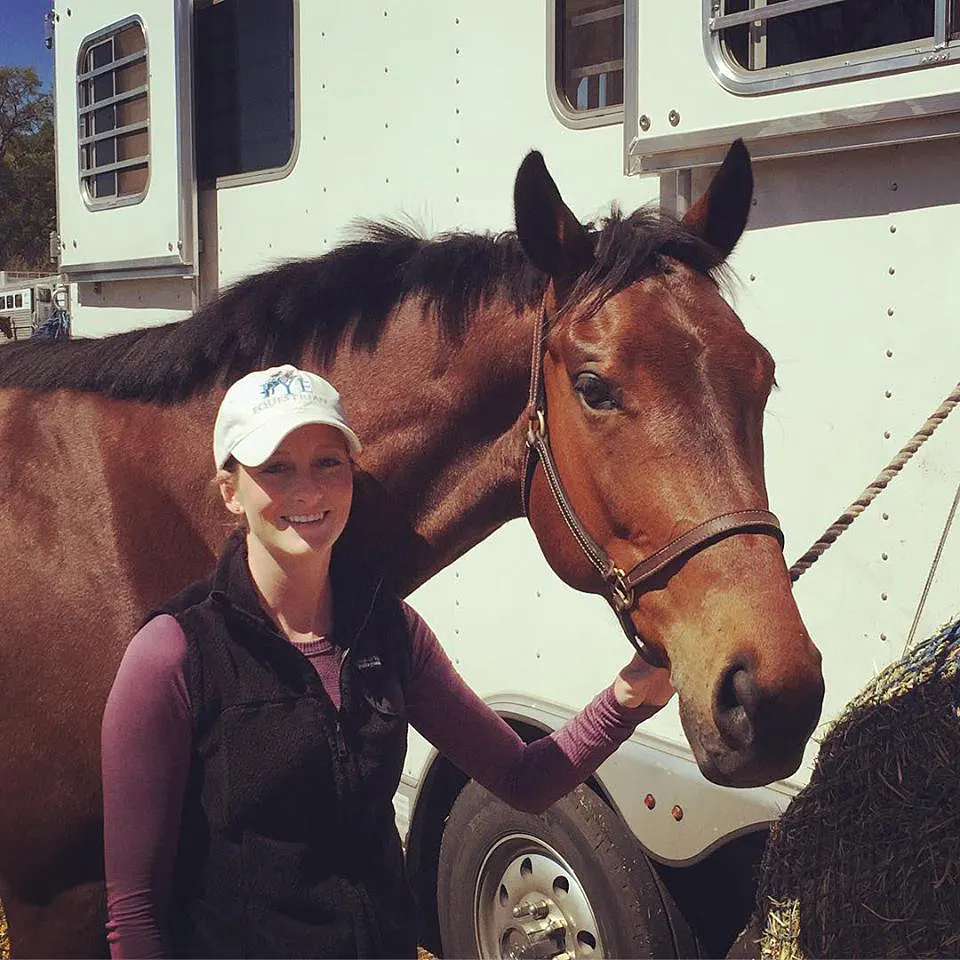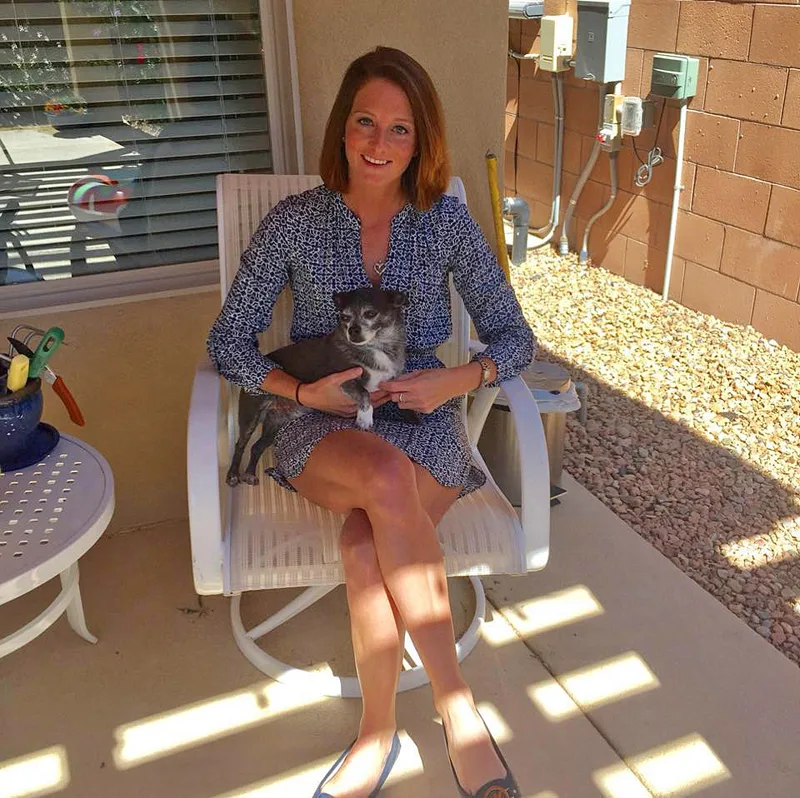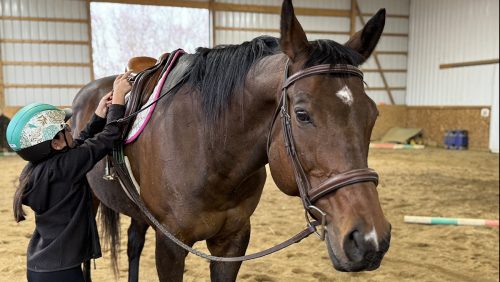Let’s begin with a little history. I’m 32 years old and a former full-time eventing professional. I’ve run my own competitive business, worked in beginner programs, worked as an assistant, a groom and been a working student. I’ve competed to the CIC*** level of the sport on a couple of different horses. I won the North American Junior and Young Rider Championships at the CCI* and CCI** level, and I made the USEF High Performance list a number of times.
I also have a master’s degree in industrial organizational psychology and an employment history that is as long as it is varied. I have lived in eight states and spent time in most of the others, and I enjoy psychology, politics, business, and anything that involves greenery and humidity.
Two years ago, I decided, while sitting in a twin-sized bed in a house I didn’t own in South Florida, listening to the rain against the window, that I didn’t want to be a horse professional anymore. I had been sexually harassed, fired (always the wrong way and usually publicly), treated unkindly, and been straight up slave labor. I am a hard worker, a decent person and a good rider. But I didn’t really have a cent to my name, I was exhausted, and I no longer saw a light at the end of the tunnel. I was overworked, underappreciated and unfulfilled.
I wrote a blog (original version – somewhat angry) that turned into an article for The Chronicle of the Horse and also pissed a lot of people off. It is still one of my favorite accomplishments. Not because of what I said but because of the choice I finally made. I’m sure almost every aspiring young horse pro has had that internal battle.
Present Day:
I look around now, after a year of working in corporate America, and my world is very different. I own a lot of things now, it’s true, including my very own horse (Levity), which I bought and paid for myself. But that’s not what has really changed. I now understand how the majority of people live their lives with 8 to 5 working hours, weekends off, dinner at home, vacation days, sick days and, of course, feeling like you’re part of the corporate machine.
It was an interesting switch of lifestyle, and as I reconsidered entering the professional eventing world full time I was so grateful for the new perspective.
Until very recently I worked for a behavioral health facility for children and adolescents in Albuquerque, New Mexico, as the director of admissions, utilization review and assessment. The facility has 120 residential treatment center beds, 40 group home beds, and a fairly extensive outpatient day treatment program of about 60 clients. I started working for this company as an unpaid human resources intern.
Although I was highly educated, my work history was overwhelmed with activities of the equine variety, and unfortunately corporate America has no use for that specific set of skills (they should). Within two weeks I had picked up paid hours in reception, which was a complete trip and an awesome learning experience. They transitioned me to HR full time a couple of months later. Three months after that I became the placement coordinator for our treatment foster care sister company, and then three months after that, boom – director. All inside of a year. Insert horrified face here (really the worst part of corporate America is having to put makeup on every day – such a waste of time).
When I started this position our census was the lowest it had been in decades. My second week on the job I had to cut the hours of half of my staff. It became very clear that without butts in beds this company was not going to survive, and although I started working for this company because I wanted to help mentally ill kids, my main function was now to bankroll the facility. Welcome to corporate America.
Because no passionate event rider can ever really give it up, and because Albuquerque isn’t a hot spot for eventing action, I also accumulated several students whom I help on the weekends. Everyone needs a second “fun” job in addition to their 50-hour-a-week day job, right? I thought I would never work professionally in the horse world again, but it turns out I still loved it. I loved it even more now that the daily grind behind my desk was incredibly stressful and all too important. All of a sudden that not-so-perfect ride I had just didn’t matter much. I was dealing in sick, abused and dangerous kids. A whole new world.

Time spent in corporate America meant the income to buy and campaign my own off-the-track Thoroughbred, Levity.
What I’ve Learned:
My perspective has changed pretty drastically when it comes to a lot of things. It’s also funny what hasn’t changed.
ADVERTISEMENT
I still believe there are a lot of advantages to a corporate job:
• Benefits: Vacation days, personal days, sick days and a work week that is within reason no matter what happens.
• A certain level of professionalism is required, and if it is not displayed you can do something about it. People do not just get fired at random (with the exception of layoffs). There are things like written warnings, corrective action plans and a certain level of civility.
• Weekends. Who doesn’t love weekends?
• A climate-controlled environment. Yup. Enough said.
• A consistent paycheck.
• Feeling like you’ve done important work. Now this isn’t every job, of course, but despite the stress and sometimes the trauma my job often created for me, we are helping kids who need it most. And by need it I mean need shelter, food, education and kindness. Not a new pony. Let that rattle around in your head for a minute.
There are also disadvantages:
• At the director level (so you’re finally making money) the company does own you somewhat. It’s your head on the chopping block and working 40 hours a week is rare.
• Vacation days are limited, so getting the time you need to horse show is a logistical challenge (especially in a place like Albuquerque). I think this is the biggest challenge for a competitive horse person.
• Making $50 an hour in corporate America is harder than you think! In the horse world $50 an hour is standard.
• It’s definitely work. You won’t love every minute of it. And some days you will hate it.
Essentially, having gone a completely different way with my work made me love the horses more and appreciate the business I had and the lifestyle I lead. As I head back to the full-time horse pro gig, it’s on my terms. And as I’ve said before, you have to find a way to fund that dream, and hard work alone is not enough. Luck and money are always involved, and unfortunately those two things are often the determining factor between success and failure. If that statement rubs you the wrong way you likely lead a life of privilege and haven’t fully realized it. That’s OK. It took me a while too.
ADVERTISEMENT
The Goal:
The goal is to run a successful horse business that actually runs like a business. We all know that the professional horse industry has become this no-holds barred, no official rules, hobby type production that people make money off of but refuse to run like a business. As a result, the industry faces major issues like rapid employee turnover, employee neglect, sexual harassment and even more normal things like simply not turning a profit.
Why? NO! It’s not because this is the way the horse industry is and will always be. That’s some stereotypical, change resistant, old-school talk right there. And it’s not because horse pros are all slave driving, power hungry, jerks. (I mean some are, but don’t be that person.) I honestly believe it is because most horse pros just don’t know better. So, I’m here to help with that.
Topics to be covered:
1. The job ad (Not from hell…)
2. The job description (Yes – you have to do this)
3. The interview (Shocker – it’s paid)
4. Selecting the right employees (Not the first person who tentatively says yes)
5. Keeping the right employees (This is the money entry right here)
6. Part A: Incentives/Benefits (Them)
6. Part B: Management Training (You)
7. The numbers and payment (Please tell me your employees actually make money)
8. Write-ups and corrective action plans (Also have to do this – you’ll thank me later)
9. How to terminate an employee (There is DEFINITELY a right and a wrong way)
Jessica Pye is an advanced-level event rider who grew up in the hunter/jumper and equitation rings of Wellington, Florida, but fell in love with the versatility and challenge of eventing at age 12. She’s worked for and ridden with numerous top hunter/jumper, dressage and eventing instructors during her journey including Karen and David O’Connor, Capt. Mark Phillips, Mike Huber, Missy and Jessica Ransehousen, Debbie Divecchia and Emilee Spinelli. She also obtained her master’s degree in industrial/organizational psychology and worked as the director of admissions/utilization review/assessment for the largest behavioral health facility in New Mexico. She has just returned to running a professional horse business, Pye Equestrian, in Albuquerque, New Mexico.















